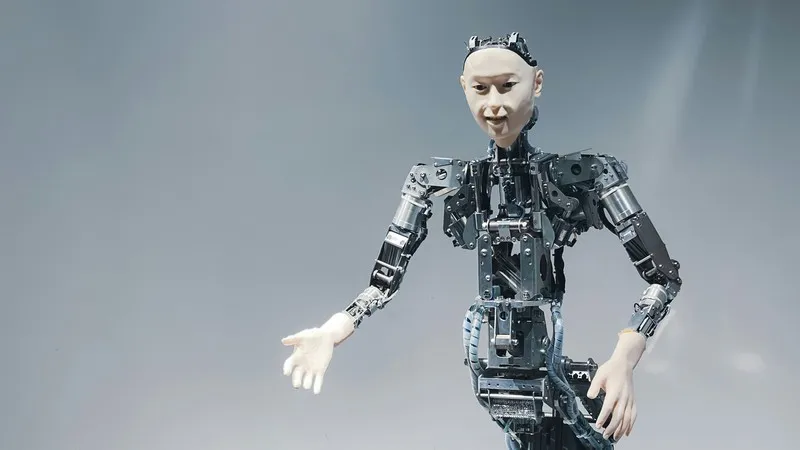Table of Contents
- Historical Context and Definition
- Theoretical Frameworks
- Cyborgs and Identity
- Cyborgs and Social Structures
- Cyborgs and Human Experience
- Ethical and Philosophical Considerations
- Future Directions and Implications
- Conclusion
In the contemporary age of rapid technological advancements, the concept of cyborgs—organisms that integrate both biological and artificial components—has evolved from the realm of science fiction into a topic of serious academic inquiry. The term “cyborg,” a portmanteau of “cybernetic organism,” was first coined in the 1960s and has since permeated various fields, including sociology. This article aims to provide a comprehensive sociological overview of cyborgs, examining their implications for identity, social structures, and the nature of human experience in the digital era.
Historical Context and Definition
The idea of merging human and machine is not new; it has deep historical roots that trace back to early human tool use and mythological figures like the Greek Hephaestus, who crafted mechanical servants. The modern conceptualization of cyborgs emerged in the post-World War II era, a time marked by significant technological innovations and an increasing interest in space exploration. Cyborgs were initially envisioned as enhanced beings capable of surviving in extraterrestrial environments. However, the definition has since expanded to encompass any entity that incorporates both organic and synthetic elements, ranging from medical implants to sophisticated prosthetics.
Theoretical Frameworks
Posthumanism
Posthumanism is a critical theoretical perspective that questions the traditional boundaries between human and non-human entities. It challenges anthropocentric views by advocating for a more inclusive understanding of subjectivity that recognizes the agency of machines and other non-human actors. From a posthumanist standpoint, cyborgs represent a blurring of these boundaries, suggesting a future where human identity is increasingly fluid and intertwined with technology. This perspective invites sociologists to rethink the nature of personhood and the ethical implications of biotechnological enhancements.
Actor-Network Theory
Actor-Network Theory (ANT), developed by sociologists Bruno Latour, Michel Callon, and John Law, provides a useful framework for analyzing the interactions between humans and non-human entities. ANT posits that society is composed of networks that include both human and non-human actors, each playing a crucial role in shaping social dynamics. In the context of cyborgs, ANT allows us to explore how technological artifacts, such as implants and wearable devices, co-construct social reality alongside human actors. This approach emphasizes the co-dependency and mutual influence of humans and technology.
Cyborgs and Identity
Identity Transformation
The integration of technology into the human body fundamentally alters perceptions of identity. Cyborgs challenge traditional notions of the self by introducing new forms of embodiment and experience. For individuals with prosthetics or implants, the boundary between self and technology becomes increasingly ambiguous. This transformation can lead to a redefinition of personal identity, where technological enhancements are not merely tools but integral parts of one’s being. Sociologically, this raises questions about the continuity of selfhood and the social processes that support identity construction.
Disability and Empowerment
The cyborg metaphor is particularly significant in the context of disability studies. Technological augmentations can empower individuals with disabilities by restoring lost functions or enhancing capabilities. From a sociological perspective, this empowerment can be understood as a form of social inclusion, where technology acts as an enabler rather than a barrier. However, it also necessitates a critical examination of societal attitudes towards disability and the potential for new forms of inequality based on access to biotechnological resources.
Cyborgs and Social Structures
Labor and Employment
The integration of cyborgs into society has profound implications for labor and employment. As technology becomes more embedded in the human body, the distinction between human labor and machine labor becomes increasingly blurred. Cyborgs could potentially redefine what it means to work, altering job requirements and expectations. For instance, enhanced cognitive and physical abilities might become prerequisites for certain professions, leading to new forms of stratification based on technological augmentation. This shift calls for a reevaluation of labor laws and ethical considerations surrounding workplace enhancements.
Surveillance and Control
The incorporation of technology into the human body also raises significant concerns about surveillance and control. Cyborgs, equipped with various sensors and data-gathering devices, can be monitored in unprecedented ways. This potential for constant surveillance poses threats to privacy and autonomy, as individuals may be subjected to increased scrutiny by employers, governments, and other institutions. Sociologically, this necessitates an exploration of the power dynamics involved in such surveillance practices and their impact on personal freedom and social trust.
Cyborgs and Human Experience
Get the full article AD FREE. Join now for full access to all premium articles.
View Plans & Subscribe Already a member? Log in.





